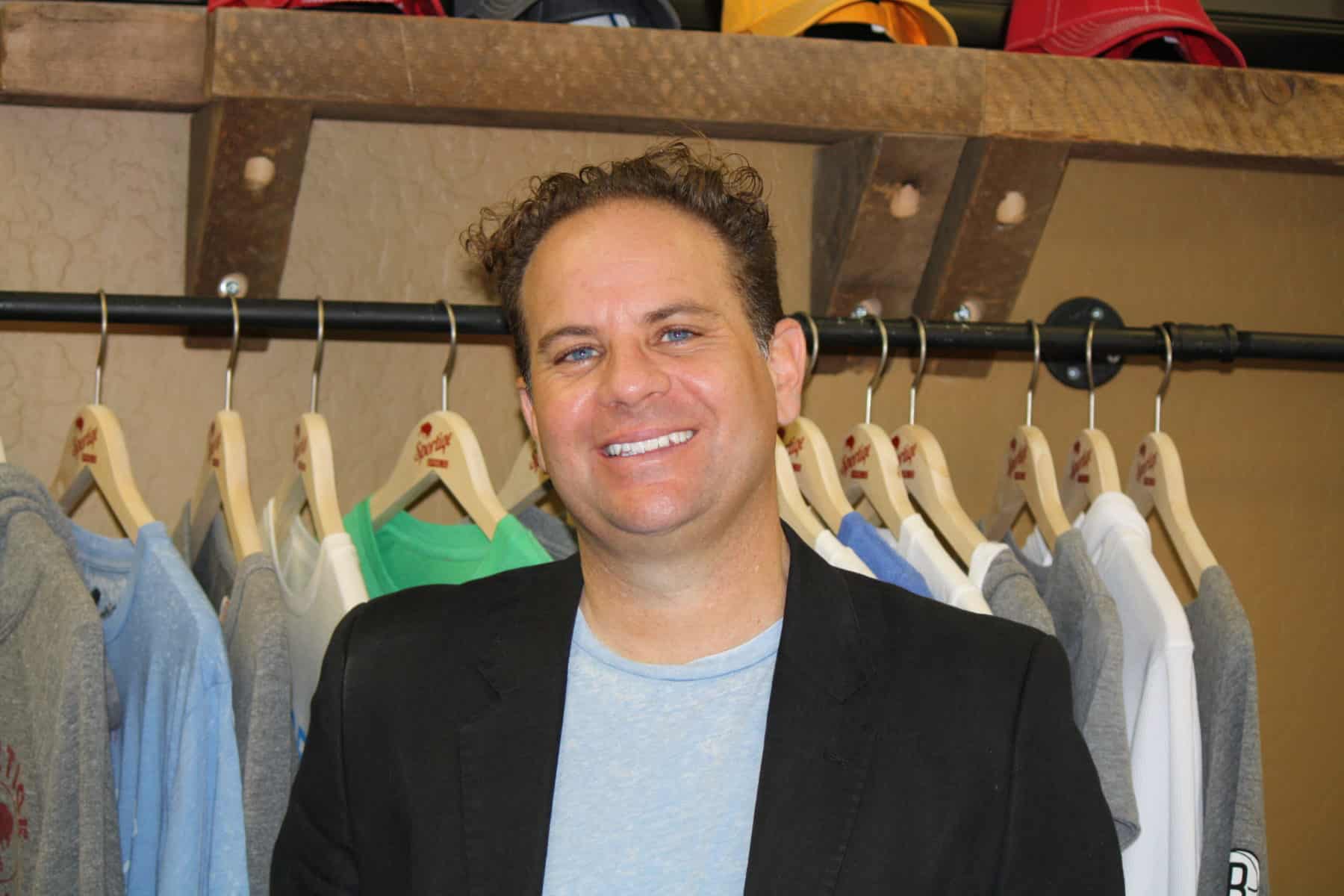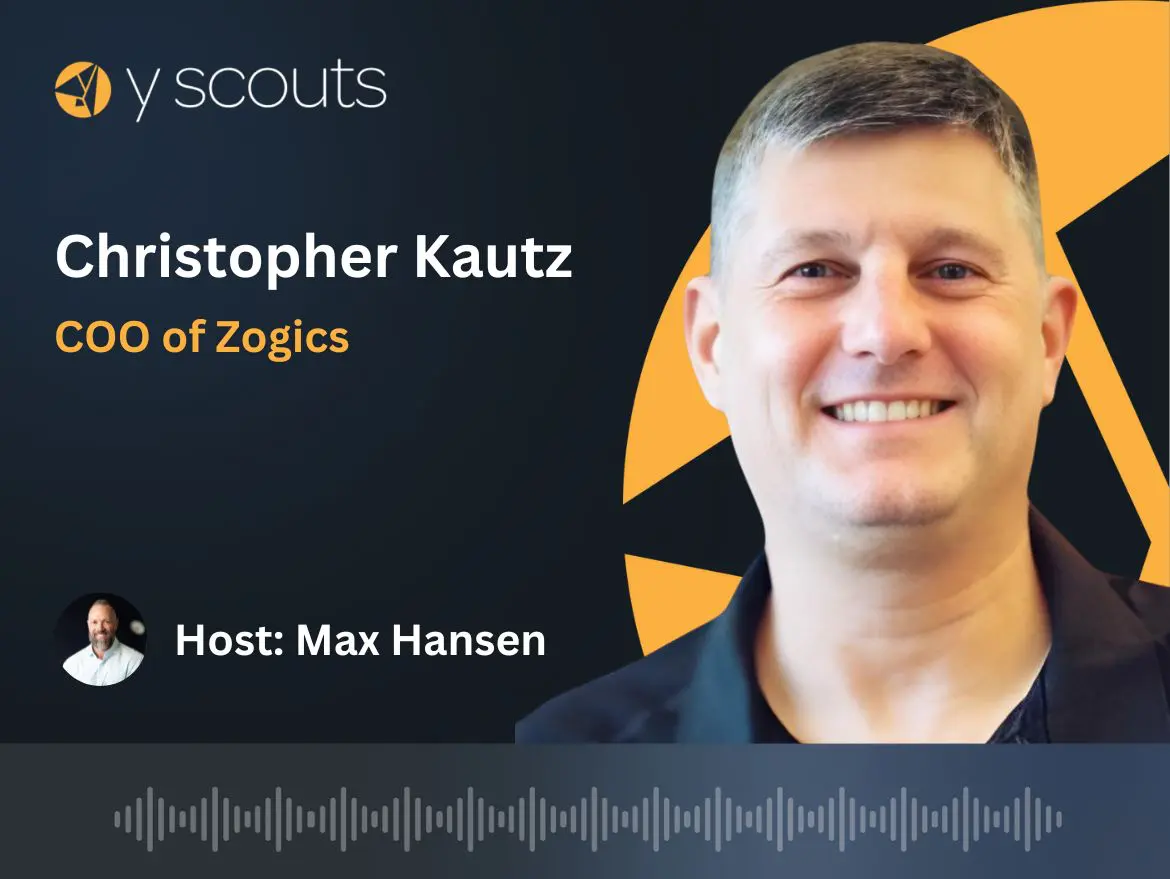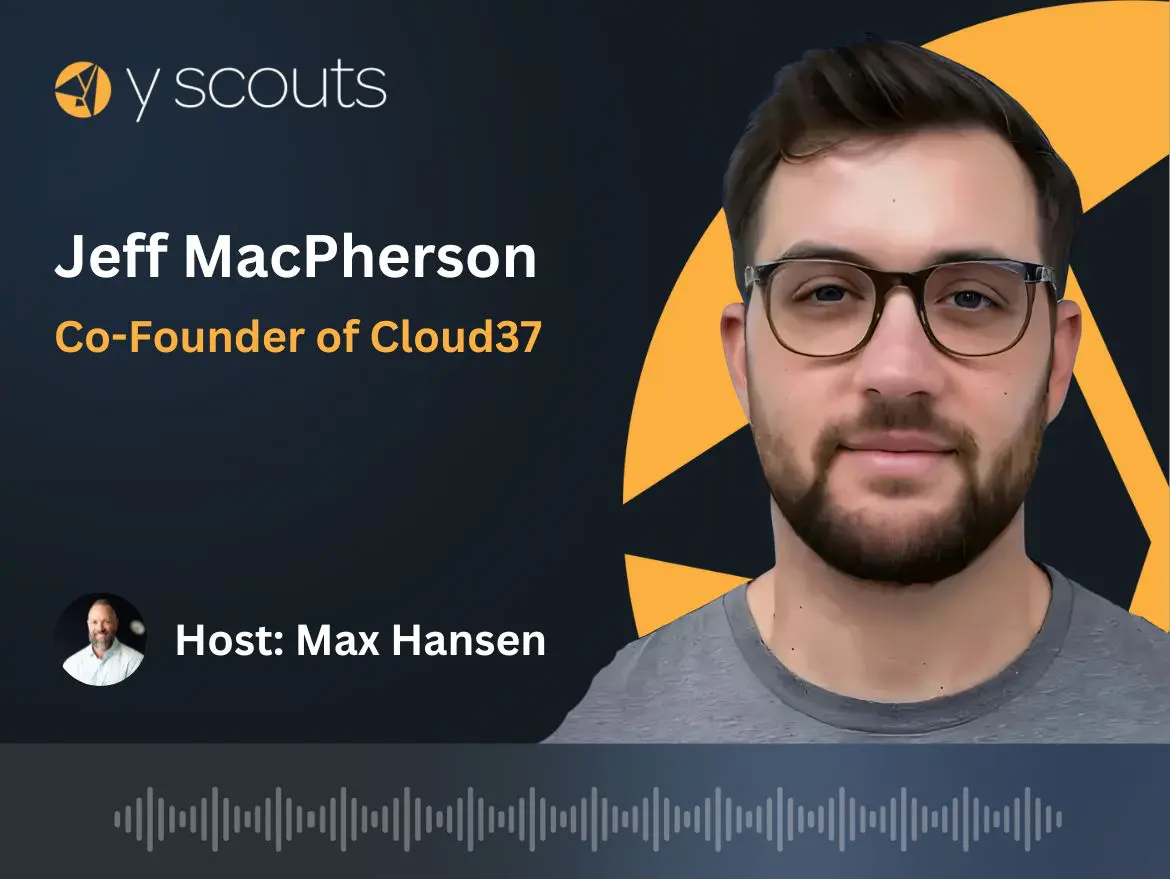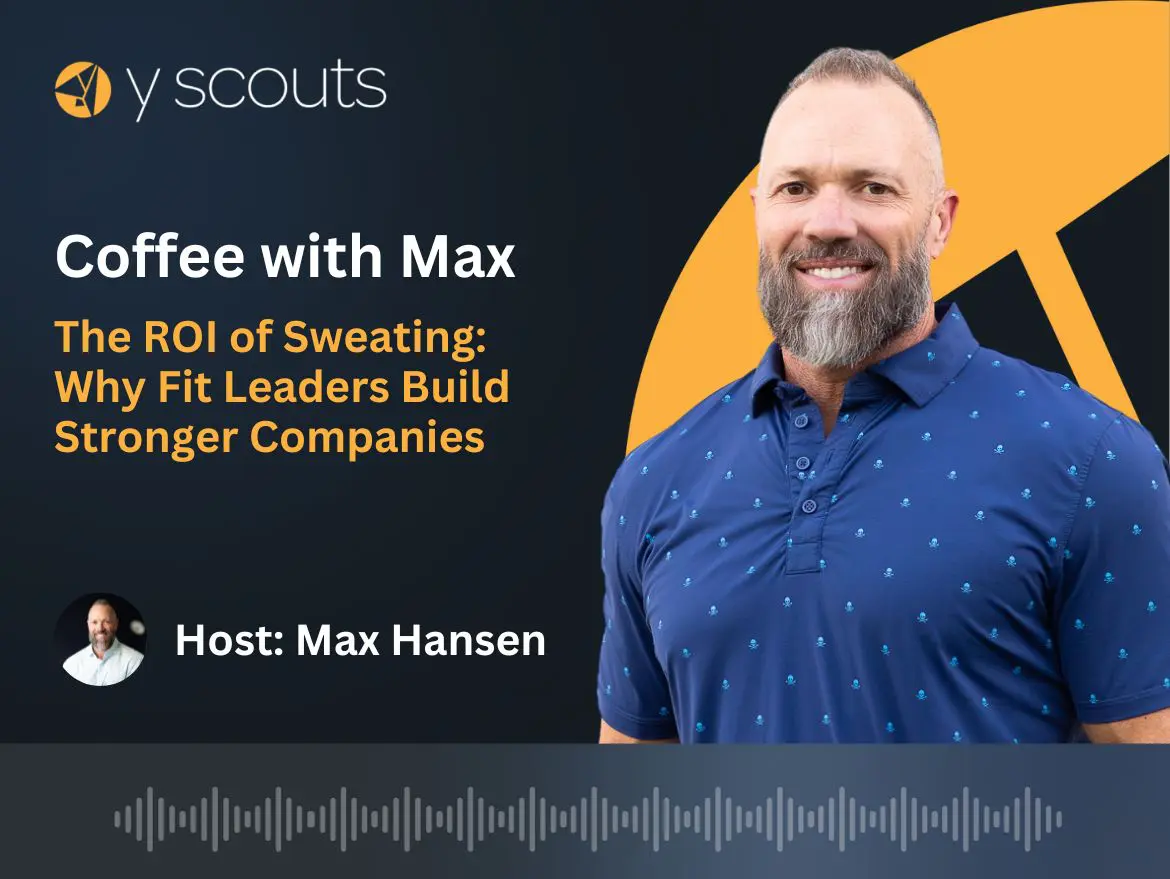
Matt Altman is quite a unique individual. In fact, this concept of uniqueness is something we cover quite extensively in this podcast, as Matt has chosen to integrate this concept into every part of his life. After 12 years working for a variety of professional sports teams focused in merchandising, he and his fellow co-founder decided to launch a lifestyle apparel company called Sportiqe. What started out as a business focused on creating a more comfortable brand of clothing has evolved into so much more: a business that is focused on celebrating the unique fan inside of everyone.
Building and growing a business requires hiring the right people—and Matt shares his philosophy around the importance of aligning the right people to the company and its culture. We talk about the importance of learning as a continuous journey, and how Matt believes his role as a leader is to help people become the best version of themselves by creating the best environment in which people can grow and thrive. In addition to his role as the Principal of Sportiqe, Matt is an accomplished speaker and delivered a powerful TED talk about the two ingredients necessary to be rich.
Matt is a deeply philosophical leader and there’s no doubt you’ll walk away from this episode with a deeper appreciation for everyone in your life.
Listen to this Matt Altman podcast interview and more episodes from the Built On Purpose Podcast at https://yscouts.com/podcast/.
Table of Contents
ToggleSHOW HIGHLIGHTS
- 3:43 – What uniqueness means
- 7:28 – Why are you here?
- 10:38 – Beginning shape of a career path
- 13:14 – “Fashion for the Fan”
- 15:35 – Purpose and culture alignment in business
- 26:59 – The pursuit of happiness
- 32:43 – What makes all of us rich?
- 37:16 – Serving the companies by serving the people
SHOW LINKS
MATT ALTMAN PODCAST INTERVIEW
Q: One of the things that you’re incredibly passionate about is this concept of being unique. And this concept has played a fairly central role in your life for many, many years. You also gave a TED Talk on this topic about being unique. Can you give our audience a sense about what this “uniqueness” concept has meant to you and why it has played such central part of your life?
M: Sure, I think where I would first start is, it’s not really a concept. I think it’s a reality, and the reality is, every human being is unique, every moment is unique, every breath is unique, every experience that we have is unique and we really can’t replicate and repeat. We may try, and so this whole understanding for me about uniqueness has really helped put a lot of my life into perspective just in terms of understanding, what does it mean to be alive? What does it mean to have this gift to be alive? And to come and really look at it from that perspective, as opposed to the multitude of ways we could maybe look at our lives in maybe a negative way. I think it’s an understanding that there is no one like me on the face of this earth, and that’s neither good nor bad, it just is. How do I look at myself and then how do I say what is it that I have that I can bring to my life and to this world in terms of gift, talent, strength, etc.? I think it’s one of the challenges for humans to really find what those gifts and strengths are that you have, and then use them.
B: Is this a mindset that you’ve had dating back to a very early age? Was there a pivotal moment in your life when this concept came into focus? Share a little bit about that.
M: I think so much of it is the whole mind-body connection. For me, it was a process. I think ultimately, I always knew this, but it was kind of buried within my conscious in terms of that mindset, and as I transitioned from college to the workforce and trying to understand more of who I am and my place in the world, that understanding of being unique really started to come to the forefront. I think in seeking a better understanding of who I am, uniqueness was something that just started to resonate with me in terms of what does it mean to be alive, why am I here, what is the purpose of my life? To start actually looking to address those answers for myself.
B: So you are the principal and one of the co-founders of a company called Sportiqe. Tell us a story of Sportiqe.
M: Sportiqe started in 2006. Myself and co-founder Jason Franklin were at similar points in our career in really wanting to embrace our entrepreneurial spirit. Prior to starting Sportiqe, I had worked 12 years in professional sports, mainly doing merchandising for the Phoenix Suns, Arizona Diamondbacks, Phoenix Coyotes—basically all of the professional sports teams in town related to the arena and the ballpark. So I really saw a niche in being able to deliver better lifestyle apparel to the marketplace, and Sportiqe was kind of born out of that niche. From an individual standpoint, it was really looking to challenge myself and being able to start this business and as the company evolved, we really honed in on that uniqueness, we’ve always looked to celebrate uniqueness of people. But not only the people; it’s also the things that are happening within the business. And then also this notion of comfort, and really looking to help people feel comfortable. And this has taken a big turn for the company in terms of how we look at not only the product, but how we look at our process, how we look at how we are working with people internally and externally, and really helping people feel comfortable.
B: This focus on merchandising when you were working for some of the major sports teams in Arizona, was there something specific around merchandising and that part of the business that drew you in? Or was it sort of, that was the opportunity that was available and you wanted to be in a sports environment in the earlier part of your career?
M: I think it’s a little bit of both. When I look back at my childhood, I was always interested in clothes. I was very particular in terms of what I wanted to wear, how the fabric felt, so even I can remember just shopping in the department store with my grandfather, who grew up and worked in the garment district in New York City. I would always be feeling fabrics, I would always be looking at brands, labels–and so there was already an interest in in the products from an apparel standpoint. Then, I’ve been part of sports and athletics since I was a kid, I think my favorite toy growing up was a ball. Everything else didn’t matter, if it was a ball I was good. So I’ve always been involved in sports, and followed the business of sports, so it was very fortuitous that upon graduating from U of A. At the time I was majoring in accounting, and I was kind of set forth on going an accounting route in terms of a career. There was this opportunity to intern for the Phoenix Suns in the merchandising department, and I jumped at the opportunity. The one thing I remember is that first summer doing that internship I worked as many hours as I could day and night, and I never, ever felt like it was work. I felt like it was just great. And so I think of the environment and what I was doing—I didn’t even know those things were possible and it just fortuitously happened.
B: So the company, I know at least early on and likely still today, has some pretty well-known brands and companies who you partner with and have agreements with–you know the likes of Google, Nintendo, House of Blues, a variety of musical acts, and the NBA. How do you and the Sportiqe team identify the companies and brands out there that you feel are going to appreciate that same sense of comfort, that same sense of uniqueness, that the Sportiqe brand represents?
M: I think it really starts with people. People have all kinds of interests. And when we started the company, one of our taglines was “Fashion for the Fan,” since everyone is a fan of something. Whether you’re a fan of sports, the NBA—which has been a great partner of ours since day one—or a fan of the Dave Matthews Band, a fan of the House of Blues, a fan of Nintendo, there’s that niche and there’s that person who is wanting a quality, comfortable apparel item to show support of what they’re a fan of. And so Sportiqe has really looked to work with a lot of top brands nationally and even some internationally to where they have a demographic and a niche of that customer that could really embrace what we can do in terms of helping them feel comfortable and showing off the brand that they are a fan of.
B: So, I want to transition to your TED Talk you gave a handful of years ago. And one of the comments from your TEDxTempe Talk is: Everyone is rich. What makes all of us rich?
M: When I gave that TED Talk, and I talk about being rich, so much of that was learned from listening to Prem Rawat, who’s an international speaker on peace. He had said everyone is rich. And he went on to say that there’s two things required to be rich. One: you have to have something that is very precious, very valuable. And two: you have to have a lot of it. You have to have it in abundance. And so what I said in the TED Talk was, if you have a gold coin or a gold nugget and it was just really small, little coin, well yes, that gold coin is very valuable, precious, but if you just had one, probably not rich. But if you had thousands of those coins then, sure, you could say you’re rich. So what is it about every single human being that makes them rich? What is it that everybody has that is extremely precious, extremely valuable? And also, is in abundance? I don’t think I’ve even been able to count how many of these I had in my lifetime. And what I’m talking about is your breath. It is the most precious, valuable thing we have as a human being. It allows us to be alive. Plain and simple. And there’s a question that I always like to pose to people if I get into deeper conversations: What is the most important thing happening your life right now? And the key in that question is now. And most people will answer their job, their friends, their family, their parents, but the reality is this breath. That to me is the most important thing happening in my life, and then the question is: if it is the most important thing, and if I can recognize it is the most important thing, how much attention am I paying to it? And so that really causes a shift for me when I start connecting to myself, my breath, in a conscious way. As opposed to just thinking, I know it’s going to come again, and again, and again—we don’t really know if it is. I’ve been on this planet now for forty-four some odd years, so I have a good track record that yes, it’s probably going to come the rest of the day, it’s probably going to come tomorrow—but you never really know.






